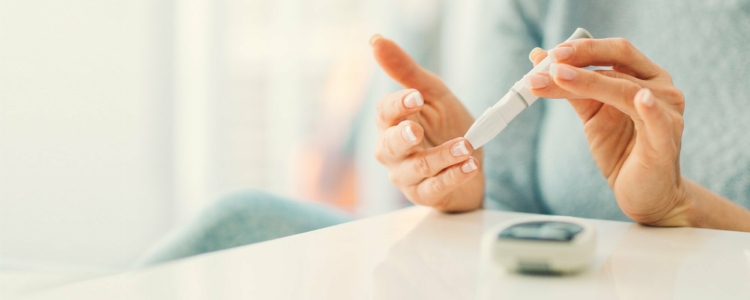Here’s how you can eat healthy every day:
- Eat three balanced meals a day with snacks, if you need them.
- Eat at regular times with meals every 4 to 6 hours.
- Enjoy a variety of healthy foods every day.
- Choose high-fibre foods, such as fruits and vegetables, whole grains, nuts and seeds, legumes, etc.
- Use a variety of cooking methods, especially those that are low in fat, such as baking, steaming or grilling.
- Choose unprocessed foods.
- Cut back on desserts and salty snacks. When you do eat them, keep portions small and savour them.
- Use sugar substitutes (aspartame, stevia, etc.) in moderation.
- Make sure that you have protein with every meal. Protein makes you feel full and does not increase blood sugar levels. Protein can be found in meat, fish, dairy products, eggs, legumes, nuts and seeds.
- Make water your drink of choice and stay hydrated.
- Limit your alcohol consumption and drink alcohol accompanied by food.
Ideally, a balanced meal should include lots of fruits and vegetables, whole grains (quinoa, whole grain bread, whole grain pasta, whole oats) as well as protein (eggs, legumes, tofu, fish, lean meat, low-fat dairy products).
Sometimes, a balanced meal may not be readily available, or you may have to delay one of your meals. For such exceptional situations, nutritionally adequate substitutes made for diabetics are available at your pharmacy. These drinks are not meant to totally replace a meal, but they can be used to complete one or at times when delaying a meal is unavoidable. If you have any questions regarding these products, feel free to ask your pharmacist or consult a nutritionist to obtain personalized advice.
Managing blood sugar
The sugar in your blood primarily comes from carbohydrates in the food that you eat. Carbohydrates are also your body and brain’s main source of energy. There are many foods that contain carbohydrates, namely cereals and grains: bread, pasta, rice and quinoa. People with diabetes should not stop eating these foods. Rather, they should watch how much carbohydrates they eat and distribute them evenly throughout their meals. Eating moderate amounts of carbohydrates regularly will help you control your blood sugar and thus prevent hypo- and hyperglycemia.
Hypoglycemia
By definition, hypoglycemia occurs when blood sugar levels dip beneath 4 mmol/l. Various factors can cause hypoglycemia, such as physical activity performed more intensely than usual, insufficient ingestion of food or the intake of medication, be it orally or via injection, such as insulin. A too-large dose of insulin can cause a drop in blood sugar levels. This may cause certain symptoms to appear, such as the following:
· Weakness
· Perspiration
· Headache
· Trembling
· Dizziness
· Cravings
· Mood swings
· Impaired eyesight
Some people may, however, not experience any of the above. Symptoms may also vary from one person to another and depending on the episode.
If your blood sugar level is between 2.8 and 3.9 mmol/l, it is recommended that you intake 15 grams of carbohydrates in the form of glucose, to quickly revert your blood sugar level back to a normal range. This amount of sugar can be one of the following:
- ⅔ cup fruit drink or
- ⅔ cup regular soft drink or
- 3 packets sugar (1 tbsp) dissolved in a glass of water or
- 15 ml (1 tbsp) honey or maple syrup or
- Glucose tablets are also sold in pharmacies.
If your blood sugar level is below 2.8 mmol/l, this is considered severe hypoglycemia, and it is important that you consult a healthcare professional in order to treat it quickly and adequately. In acute cases, it is possible to lose consciousness. If your blood sugar is below said value, it is recommended that you consume 20 grams of carbohydrates, i.e.:
- 1 cup fruit drink or
- 1 cup regular soft drink or
- 4 packets sugar or
- 20 ml (4 tsp) honey or maple syrup or
- Glucose tablets are also sold in pharmacies.
Wait 15 minutes and test your blood sugar level once again. Repeat the same process (15 grams of carbohydrates) until your blood sugar exceeds 4 mmol/l. Have a meal or a snack afterwards.
Other precautions may also be taken to properly manage possible bouts of hypoglycemia. For example, your doctor could prescribe glucagon, a hormone produced by the pancreas that increases blood sugar levels. In case of severe hypoglycemia with loss of consciousness, glucagon can be injected to raise blood glucose levels back to normal. Someone close to the person with diabetes should also be able to administer the glucagon and know where it is kept, in case the person in need of treatment is unconscious. The person in question should receive training for this from a healthcare professional.
Hyperglycemia
Hyperglycemia occurs when blood glucose levels are above 7 mmol/l when fasting (or before a meal) or at 10 mmol/l two hours after the start of a meal. Such an increase in blood sugar levels can be explained by an insufficient or inefficient quantity of insulin, which leads to an accumulation of sugar in the blood. Many factors can cause hyperglycemia, such as the ingestion of foods rich in carbohydrates, stress, the intake of certain medications or an insufficient dose of diabetes medicine.
Hyperglycemia may go unnoticed or manifest itself by the following signs:
- Fatigue
- Excessive urination
- Extreme thirst
- Exaggerated hunger
- Irritability
- Dizziness
To treat and prevent hyperglycemia, it is recommended to measure one's blood sugar more often than usual and to identify possible causes in order to rectify the situation. Furthermore, healthy eating, adequate hydration and the proper intake of prescribed medication contribute to regulating the level of sugar in the blood.
If you suffer from hypo- or hyperglycemia, feel free to discuss this with your pharmacist, who will help you prevent and better manage these situations.
Managing fat
A high-fat diet can cause weight gain and make insulin less effective. But your body needs fat to function. In fact, fat helps to move some vitamins through your body (A, D, E and K), supports cell growth, and is your largest reserve of energy. So, it is important to eat different kinds of fat, but try to eat monounsaturated (vegetable) fats instead of saturated (animal) fats.
Cardiovascular health
Since people with diabetes are at a higher risk of developing cardiovascular disease, they should limit their intake of ‘bad’ fats (like saturated and trans fats, and cholesterol). Choose monounsaturated and polyunsaturated fats and eat more omega-3-rich foods (oily fish, canola oil, nut oil, walnuts, flaxseeds). But watch out for hidden fats! Look for ‘fat’ on the nutrition facts label and keep in mind that you only need 55 to 75 grams of fat a day.
In short, enjoy a variety of healthy foods every day, including lots of fruits and vegetables, whole grains and nourishing protein sources. Try to limit fat, salt and alcohol. These are general guidelines to improve your diet, but it is important to see a registered dietitian to get a custom diet plan and advice that is adapted to your needs. A registered dietitian can also help you improve your glycated hemoglobin (A1C or HbA1c) level, which reflects your average blood sugar level over the past three months.
If you have any questions about healthy eating, talk to your pharmacist. You can also meet with a registered dietitian at some Accès pharma pharmacies. These services may vary from pharmacy to pharmacy. Please contact your pharmacy for information and conditions.
This information is not a substitute for professional medical advice and pharmacist-owners affiliated with Accès pharma cannot be held responsible for this information. The information was true and accurate at the time of publication, but it is subject to change.






